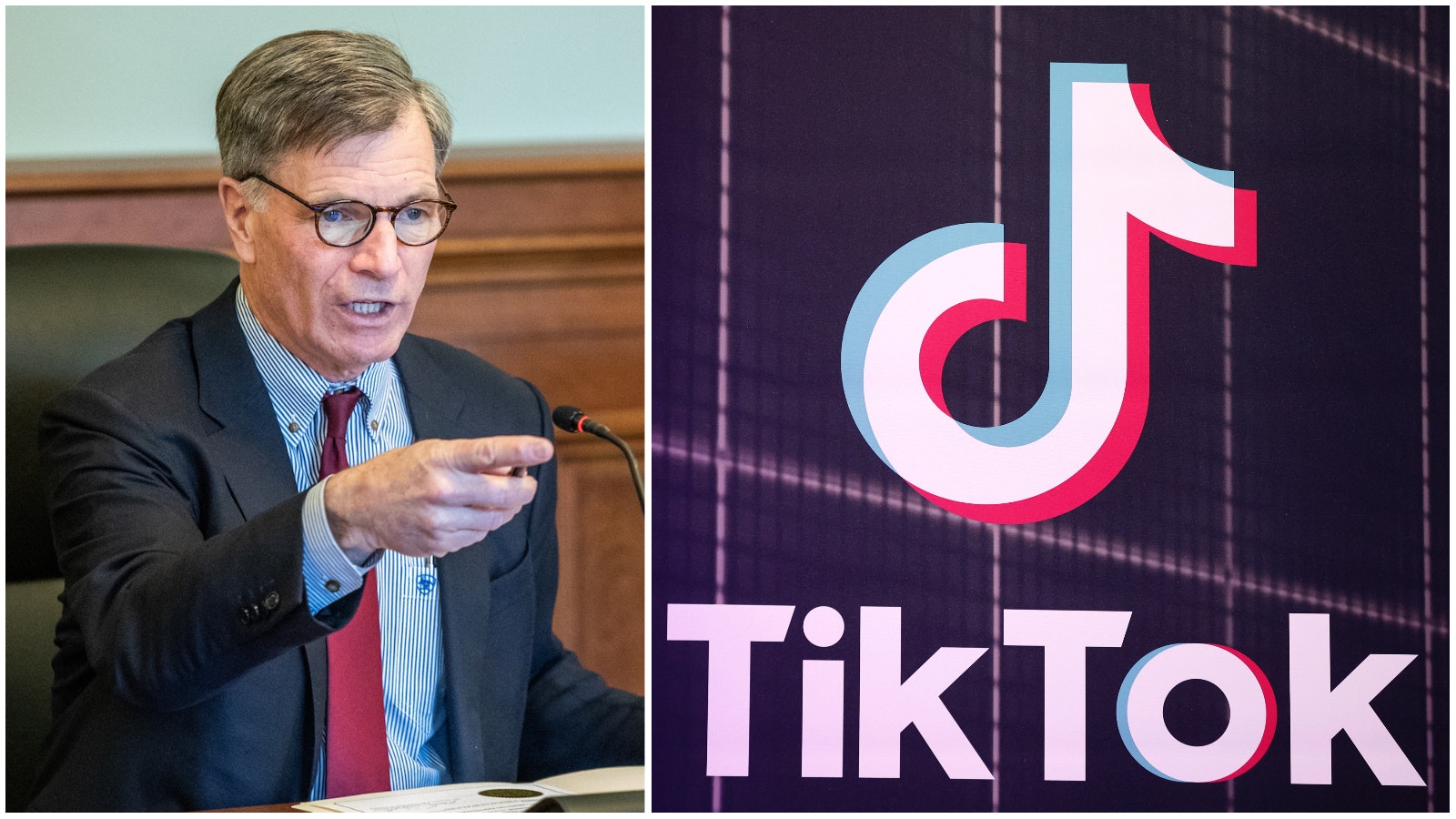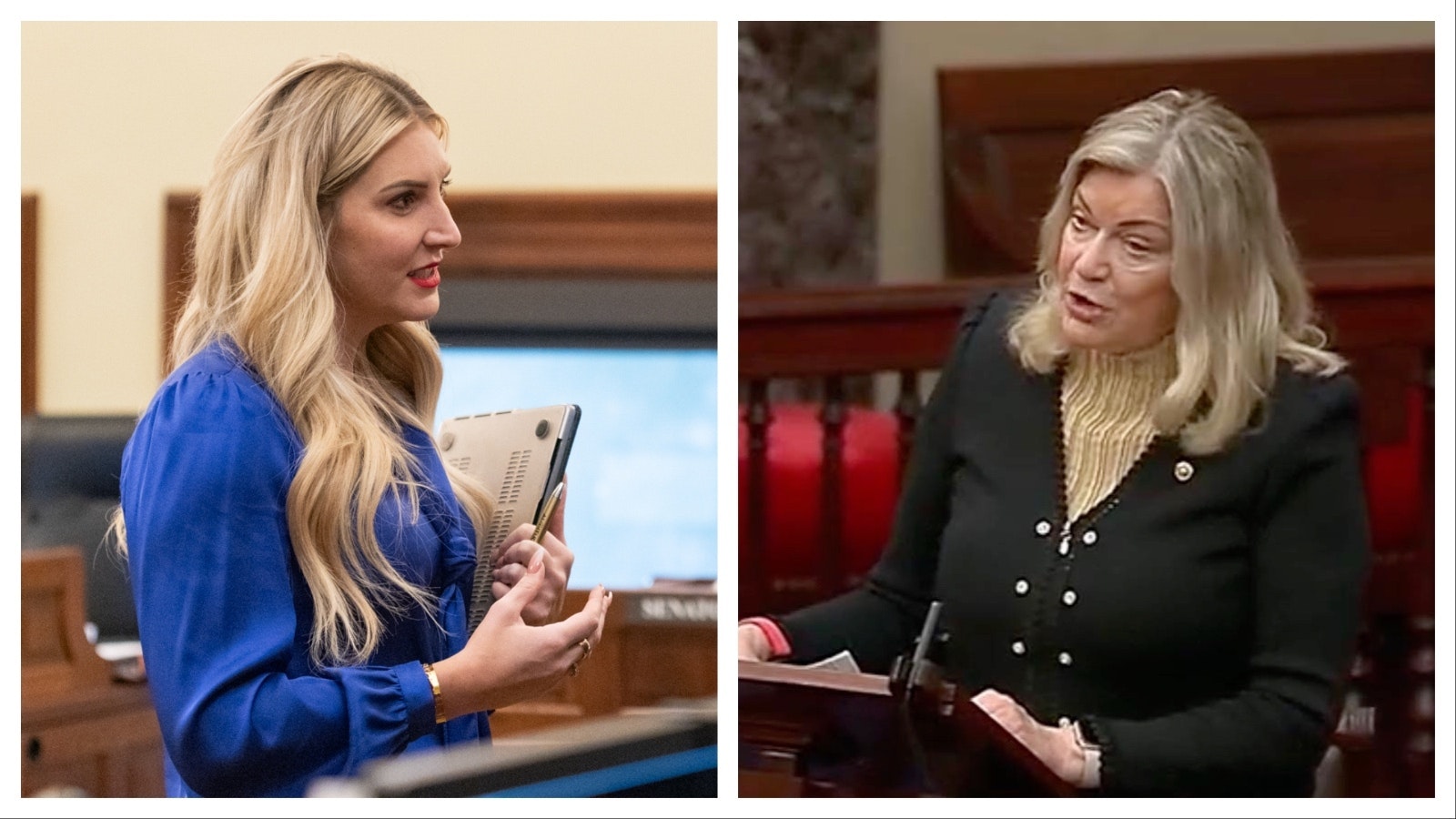By Leo Wolfson, State Politics Reporter
Leo@Cowboystatedaily.com
It only took a few hours after Secretary of State-elect Chuck Gray announced he would forbid the use of TikTok in his future office for Gov. Mark Gordon to follow suit.
Gray made his announcement about four hours earlier in the day.
In a memo addressed to all state employees, Gordon said TikTok will be permanently removed, and its access blocked from all state government electronic devices and networks.
The ban will extend to all state-issued cell phones, laptops, tablets, desktop computers and other information technology equipment capable of internet connectivity. Gordon said his office may grant exemptions to enable law enforcement to use the platform as needed.
“I recognize that the State has a vital role to play in protecting its citizens from, as well as identifying and responding to, cybersecurity threats that could impact Wyoming’s collective safety and privacy,” Gordon said in a memo to the state’s employees.
“The risk is that TikTok may be compelled to share information with those who are adverse to Wyoming’s interests. Law enforcement warns that TikTok may not control its algorithm, allowing users’ devices to be compromised,” the memo read.
Chuck Didn’t Matter
Michael Pearlman, spokesman for Gordon, said Gray’s announcement had no effect on the Governor’s decision, which he said is effective immediately. Pearlman had told Cowboy State Daily on Tuesday that Gordon was considering this decision.
“Unlike an announcement in a press release that has no effect until the Secretary-elect takes office, any action of the Governor’s that impacts all state employees requires a coordinated internal review involving multiple agencies,” Pearlaman said. “This takes some time to implement, which is why the announcement did not occur until today.”
Pearlman said Gordon had met with Gray on Wednesday, and informed the secretary of state-elect he was planning on banning the social media platform.
Gordon is directing a coordinated review by Enterprise Technology Services, Wyoming Office of Homeland Security, and the Wyoming Information Analysis Team to identify any other technology-based threats posed to state networks. These organizations will present their findings to his office.
Clock Ticking On TikTok
Opposition to TikTok has been gaining steam in recent weeks. This week, Iowa, North Dakota, Alabama, Georgia, Idaho and Utah joined four other states — Maryland, South Dakota, South Carolina, Texas and Nebraska that had already banned the use of TikTok within their state governments. With Wyoming’s ban, there are now 14 states banning or planning to ban TikTok use on all state devices.
“I am aware of the growing discussion nationwide surrounding TikTok’s ownership and the potential influence of foreign governments,” Gordon said in his memo.
Last week, Indiana filed two lawsuits against TikTok, becoming the first U.S. state to sue the social media platform.
On Tuesday, a group of 15 attorneys general from from Alabama, Arkansas, Florida, Georgia, Indiana, Kentucky, Louisiana, Mississippi, North Dakota, Oklahoma, South Carolina, Texas, Utah, and Virginia wrote to Apple and Google calling on the app store owners to stop listing TikTok as being appropriate for teens, over claims about the prevalence of mature content on the app.
Risks
During a speech on Dec. 2, FBI Director Christopher Wray said that Chinese officials have broad access to TikTok, allowing them “to manipulate content, and if they want to, to use it for influence operations.”
TikTok, owned by a company called ByteDance, which is based in Beijing, is subject to Chinese national security data audits because it shares data with ByteDance.
Opponents of TikTok say it could be used to potentially profile government workers and otherwise surveil Americans.
The U.S. Senate unanimously approved legislation Wednesday evening to ban the video-sharing app on government phones and devices.
House Speaker Nancy Pelosi on Thursday said she wasn’t sure if the House would introduce a similar bill but was talking to the White House about it.
U.S. Sen. Marco Rubio, R-Fla., has also proposed separate legislation that would “block and prohibit all transactions” made in the United States by social media companies with at least one million monthly users that are based in, or under the “substantial influence” of, countries that are considered foreign adversaries, including China, Russia, Iran, North Korea, Cuba and Venezuela.





